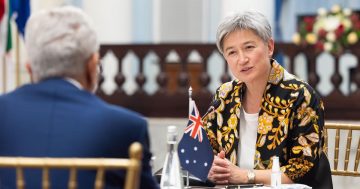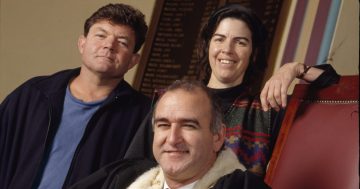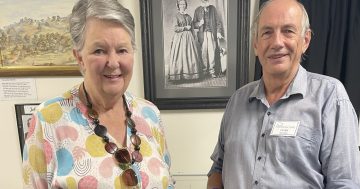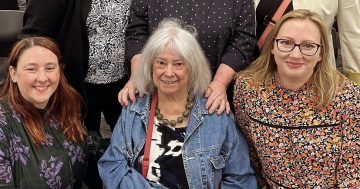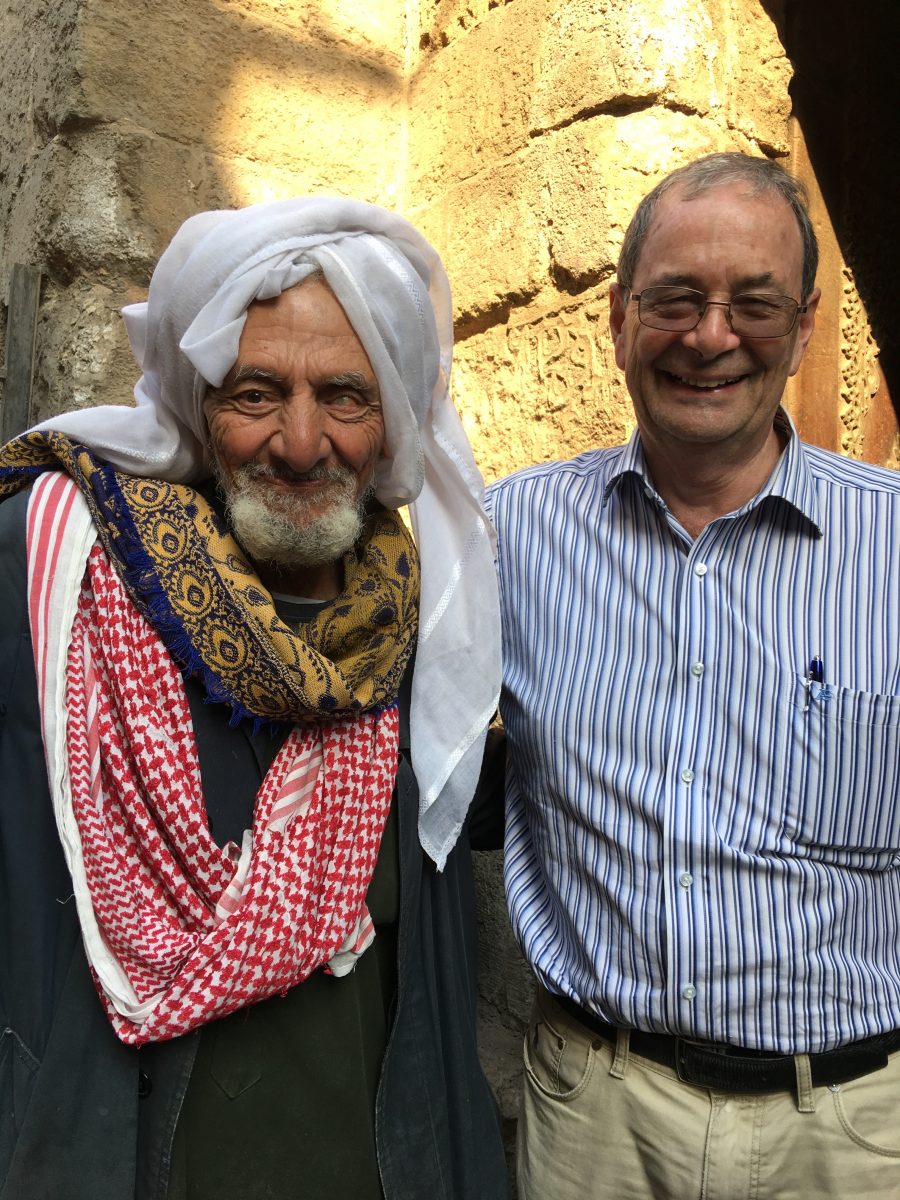
Former diplomat and now author Bob Bowker with long-time friend Mohammed Sa’ad in Cairo. Photo: Supplied.
It was midsummer in 1979. Bob Bowker represented the Australian Government in Damascus. He learned early on that not everything about living and working in the Middle East could be found in a training manual.
Bob, a young diplomat at the time, found himself representing his country at the inauguration of the new leader of the Eastern Orthodox Church. What he hadn’t known was that the former leader of the church, newly dead, would also be there, strapped to a chair and slowly turning blue. There was a fan going nearby, but when the electricity cut out, as it did regularly, the altar boys would gather quickly, light incense and waft it about – mostly in the direction of the visiting VIPs. A sight and scent he’s unlikely to ever forget.
Turns out, according to Bob, who spent 50 years as an Australian diplomat, United Nations official, intelligence analyst, academic and the media’s “go-to guy” when they need balanced comment on the Middle East, there really is no such rule book.
But now, there is a book, his book, looking back on those years and all that was held within them, called Tomorrow there will be Apricots – an Australian Diplomat in the Arab World.
Talking to Bob (who is retired now and permanently living in Canberra) or reading his book, is like having a special invitation inside the world of international diplomacy. Not just a matter of being careful what you’re saying or to whom, but insight into how lifesaving or war-preventing incidents happen.
Training for young recruits, he said in his early career, covered at least a working knowledge of the necessary issues: politics, economics and the law.
“But for me, some of the best training I ever got was from the women in the typing pool,” he said, which he describes in the book as the “toughest school in diplomacy”. “You were required to plead your case on a daily basis for having work done in a given time frame. If it was urgent, you had to be more persuasive still. Status counted for nothing. And, in perhaps the most valuable of insights for my career in the Middle East, I found that politeness, persistence, charm and a bit of good humour worked better than reference to duty statements.”
He said he also felt it was essential, in the Arab world, to have a sense of how your interlocutors understood their situation in terms of mythology that connected the present to the past.

Bob Bowker’s new book, Tomorrow there will be Apricots: an Australian diplomat in the Arab World.
“This required me to develop a strong sense of culture, history, politics and languages of those countries I was working in and develop a circle of contacts who would provide a balance of ideas that were going to shape the environment,” he said.
Bob said his wife Jenny, an artist, was integral in connecting to communities in which they lived and developing such contacts.
“I couldn’t have done the job without Jenny there,” Bob said. “She was always part of developing a circle of contacts, which helped add to my understanding of the environment in which I was working.
“Jenny dealt with real people. The others I dealt with were real too, but they weren’t the whole story.
“In the Middle East, you become aware of many versions of the truth and you’re conscious that you may not be hearing all of them.”
In his life and work as a diplomat, Bob says, there were times when he had to go into situations that, again, they were not trained for.
“There are times in the job that you have to make decisions or offer advice which has an impact on other people’s lives,” he said. “Over the years I’ve become more conscious of the moral ambiguities of exercising that responsibility.”
One such situation was on 10 January 2006 when a busload of Australian police, on holidays with their families in Egypt, crashed between Cairo and Alexandria. Six were killed, 24 seriously injured.
“No one is trained for this sort of thing,” he said. “We’re not first responders, doctors or nurses.” But they had to be.
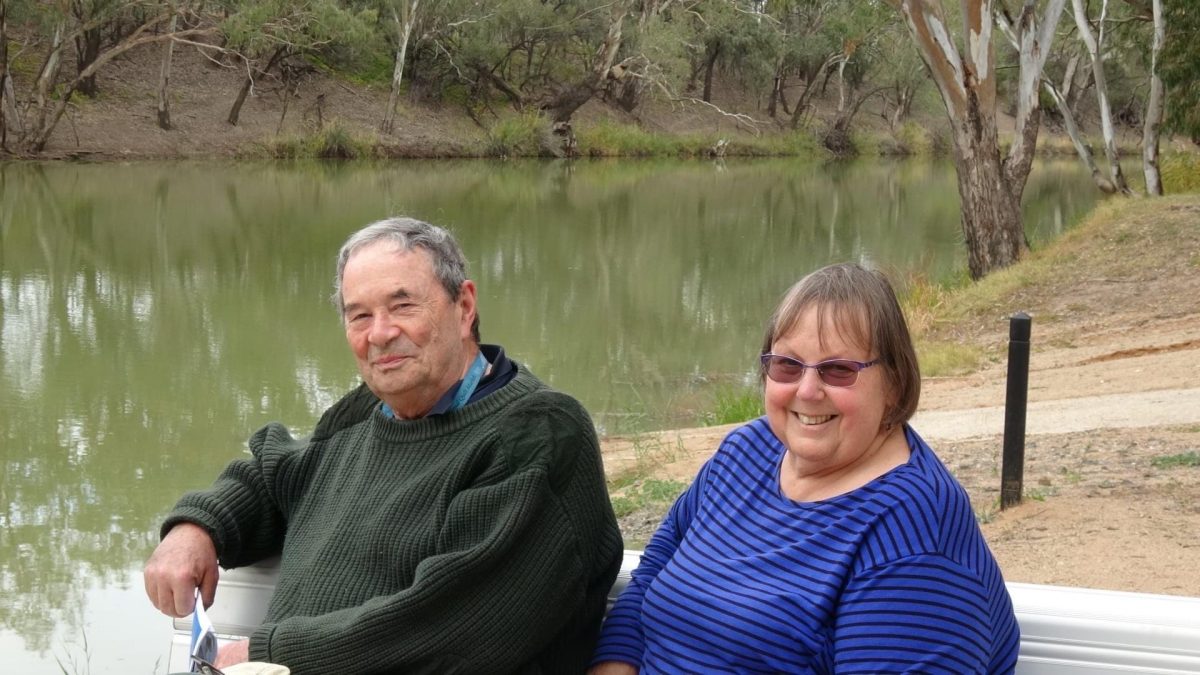
Jenny Bowker and the couple’s four children accompanied Bob on his many diplomatic postings throughout the Middle East. “I couldn’t have done the job without her,” he said. Photo: Supplied.
“In the end, we successfully managed the largest non-military evacuation of Australian civilians from a post in the history of the department,” Bob writes in the book.
With such a long career, Bob has worked with many politicians, but one for him, was a particular standout – Bill Hayden.
“I remember being with Bill Hayden during a hectic program in Damascus, how he spent 15 minutes talking to the gardener responsible for maintaining the war graves of Australian soldiers buried at the Commonwealth War Graves cemetery,” Bob said.
Such action, he said, left more of a lasting impression on the Syrians than almost anything else.
Tomorrow there will be Apricots will be launched by the Assistant Foreign Minister, the Hon Tim Watts MP, at the Australian National University’s Centre for Arab and Islamic Studies on 15 February, 2023.
Tomorrow there will be Apricots is published by Shawline Publishing
It is available at Canberra’s Paperchain book store














